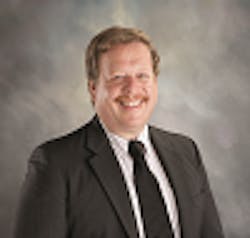The Mechanics' Institute shows how to meet today's digitalization challenges
So I'm walking around San Francisco a few weeks ago, ferrying between the Control System Integrators Association (CSIA) and OSIsoft's PI World conferences, when I ran across a third organization—the Mechanics' Institute Library & Chess Room. Just another fine payoff for keeping my eyes open.
Now, don't misunderstand me, both the OSIsoft and CSIA events were terrific, with lots of useful sessions that you can read about in this issue's In Process news section. However, I was already expecting enlightening input from them. What I wasn't anticipating was randomly stumbling into one of the city's historic, cultural institutions, and learning how many lessons it has for today's engineers and technical professionals.
Just like the hundreds of mechanics' institutes that sprouted in Scotland and the U.K. to teach much-needed vocational and technical skills during the Industrial Revolution, the San Francisco version was established in 1854 to help former gold miners and thousands of others gain the abilities required by the businesses and industries that would drive its true success in the long run. The city had grown from 800 residents in 1848 to 34,000 in 1852 with 100,000 more arriving each year, but most of the workforce was unskilled, and most supplies had to be outsourced or imported at great expense. I don't know about you, but rampant growth and desperate need for new knowledge and skills seem mighty familiar to me.
Starting with 400 books and a collection of scientific curiosities in two rented rooms, the founding directors of the Mechanics' Institute wanted:
- A library with open stacks, so all the books are accessible to members;
- A game room where members could spread out their chess and checker boards;
- Classes and lectures that would stretch the mind and teach new skills;
- To be an organization that welcomed everyone regardless of race or gender; and
- To cost as little as possible.
The institute also held expositions to fund its classes, library and other services; moved into a three-story building in 1866; helped start the University of California; rebuilt just four months after its home and collections were destroyed by the San Francisco Earthquake and Fire of 1906; and moved into its present nine-story building in 1910, where it now houses 160,000 volumes, its world-renowned chess program, and numerous cultural events.
My point is that, even in times of great technical, demographic and even geological change, local communities can quickly organize and marshal the resources they need to solve those problems. As usual, it starts with a few questions about what's needed, who knows what, where it can be obtained, how quickly, and is whoever willing to maybe donate it or at least give a discount? This let huge, overwhelming jobs be broken up into small, approachable tasks.
Today's transition to virtual, cloud, Internet of Things (IoT) and other digital technologies aren't as catastrophic as earthquakes and fires, but many industries and businesses are undergoing shifts and reorganization comparable to those during the Industrial Revolution, and more cooperation, collective action and simply cutting each other some slack could be a big help.
You don't have to start a library. Today, we have all the tools and interactivity allowed by the Internet to seek answers, gain skills and collaborate. However, these resources ironically seem to make many feel more isolated, rather than part of a supportive community. Overexposure and too many distractions, I guess.
Just like San Francisco rebounding after its famous and less well-known earthquakes, I'm always a little stunned to be reminded that following the Chicago Fire of 1871, many businesses were up and running within just a few days—or even hours. Do we still have that kind of desire and optimism? I'd like to think so, but decades of prosperity have made us fragile and fearful. We just have to prove ourselves again.
About the Author

Leaders relevant to this article:


